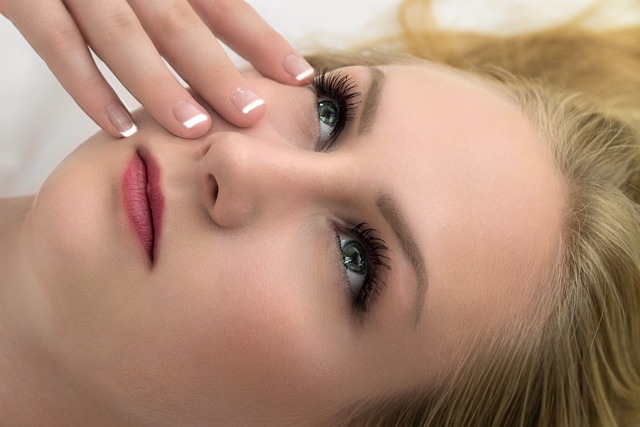Could your efforts to keep your skin young be doing the opposite? It sounds strange, but it is true. Some common skincare habits can actually speed up aging! We often fall into traps: using the wrong products or doing too much. This article helps you find out if your skincare routine is aging you.
Over-Exfoliating: Stripping Your Skin’s Natural Barrier
Your skin barrier is like a shield. It keeps moisture in and bad stuff out. A healthy barrier means younger-looking skin. Damage this barrier, and you’ll see the results of aging quicker.
The Science of Exfoliation
Exfoliation removes dead skin cells. This helps new cells come to the surface. It makes your skin look brighter and smoother. Your skin naturally sheds cells, but exfoliation speeds up the process. Getting rid of those old cells is known as cell turnover.
Signs You’re Over-Exfoliating
Are you exfoliating too much? Watch for these signs: redness and irritation are common. Increased sensitivity is another clue. Your skin might feel dry or tight. Some people even get more breakouts. Shiny skin can also mean you’ve stripped away too much.
Finding the Right Balance
How often should you exfoliate? It depends on your skin type. Oily skin can handle more exfoliation than dry skin. Try exfoliating only once or twice a week. Enzyme peels are gentler options.
Sunscreen Misconceptions and Missed Applications
Sunscreen is the best anti-aging product. But, you need to use it right. A daily dose of sunshine ages skin.
Not Enough, Not Often Enough
Many people don’t use enough sunscreen. You need about two finger-lengths for your face and neck. Don’t forget your neck, ears, and hands. Reapply every two hours, especially if you are sweating.
Choosing the Wrong SPF
SPF measures UVB protection. You need broad-spectrum sunscreen. This protects against both UVA and UVB rays. UVA rays cause aging. UVB rays cause burning. Don’t think a higher SPF is always better. SPF 30 blocks 97% of UVB rays. SPF 50 blocks 98%.
Sunscreen Ingredients and Sensitivity
Some people worry about sunscreen ingredients. Chemical sunscreens absorb UV rays. Mineral sunscreens block UV rays. If you have sensitive skin, mineral sunscreens may be better. Look for zinc oxide or titanium dioxide. Pick a formula that doesn’t irritate your skin.
Harsh Ingredients and Irritating Actives
Certain skincare ingredients can do more harm than good. They might be popular, but they can cause problems. Proper usage is important.
The Retinol Rollercoaster
Retinol is great for wrinkles. It boosts collagen production. But, it can also cause irritation. Start slowly with a low concentration. “Start with a pea-sized amount twice a week and gradually increase as tolerated,” advises Dr. Smith, a leading dermatologist.
Astringents and Alcohol-Based Products
Alcohol dries out your skin. This can lead to premature aging. Avoid products with alcohol. Use gentler toners instead.
Ignoring Skin Sensitivity and Allergies
Always test new products first. Put a small amount on your skin and wait 24 hours. Watch for redness, itching, or burning. Common allergens include fragrances and dyes.
Neglecting Your Neck and Décolletage
The neck and chest often show aging first. This is because we often forget them. Extend your skincare routine!
The Unique Needs of Neck Skin
Neck skin is thinner and more delicate. Use gentle, upward strokes when applying products. Look for creams with peptides. These ingredients help build collagen.
Décolletage Protection and Repair
Sun damage is common on the chest. Use sunscreen every day. Products with antioxidants can help repair damage.
Simple Habits for a Youthful Neck and Chest
Extend your facial routine down to your chest. Sleep on your back to prevent wrinkles. Wear scarves for sun protection.
Ignoring Your Skin Type and Its Changing Needs
Your skin type matters. Use products made for dry, oily, or combination skin. Your skin also changes as you age.
The Importance of Skin Type Assessment
How do you know your skin type? Dry skin feels tight and may flake. Oily skin is shiny and prone to breakouts. Combination skin has both dry and oily areas. Sensitive skin reacts easily to products.
Adapting Your Routine with Age
As you age, your skin becomes drier. Hormonal changes also affect your skin. You may need richer moisturizers. You may also need to switch to gentler cleansers.
Seasonal Skin Care Adjustments
During winter, the air is dry. This can make your skin dry. Use thicker creams and hydrating serums. In the summer, the air is humid. You might prefer lighter lotions.
Conclusion
Is your skincare routine aging you? Over-exfoliation, missed sunscreen, harsh ingredients, neck neglect, and ignoring your skin type can all cause problems. Create a skincare routine that’s gentle and consistent. Re-evaluate your routine and make changes as needed. For personalized advice, talk to a dermatologist.



